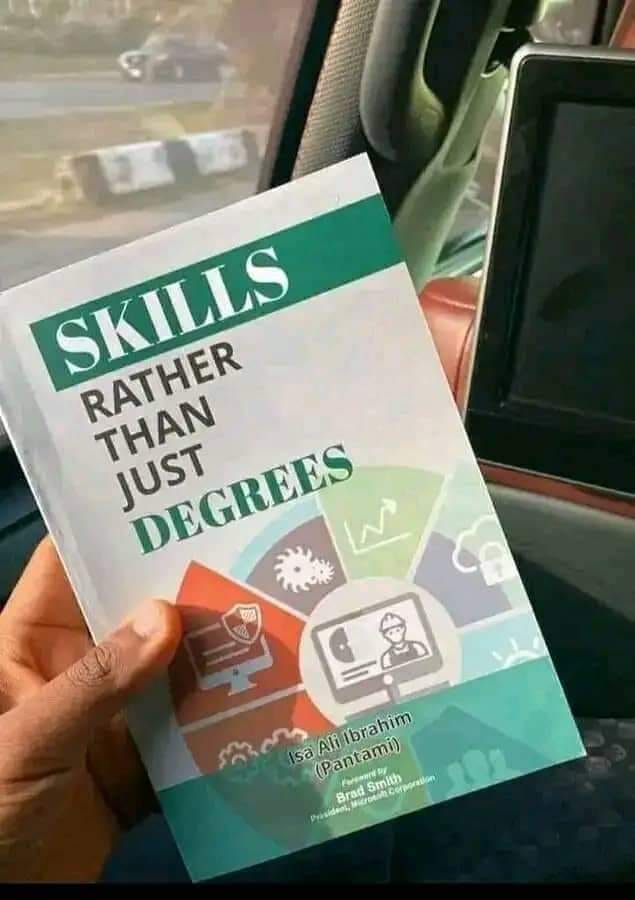In an era of rapid technological advancements and evolving job markets, the value of academic degrees alone has undergone a profound transformation. Recognizing this paradigm shift, Professor Isa Ali Ibrahim Pantami explores the importance of skills in his groundbreaking book, “Skills Rather Than Just Degrees.” Drawing on his extensive research and experience, he presents ten invaluable lessons that shed light on the growing significance of skills in today’s competitive landscape.
Lesson 1 emphasizes that academic qualifications are no longer sufficient to secure a successful career. In a world where automation and artificial intelligence are reshaping industries, individuals must possess practical skills to thrive.
Lesson 2 highlights that skills have become the new currency of the job market. Employers are increasingly seeking candidates who can demonstrate a versatile skill set, as these individuals are more likely to succeed in a rapidly changing professional environment.
Recognizing the need for a skilled workforce, Lesson 3 calls for a significant investment in vocational education and training. By equipping individuals with the necessary skills, societies can ensure their competitiveness in a global economy.
Lesson 4 underscores the importance of adaptability, innovation, and continuous learning. Those who can quickly and efficiently acquire new skills are better positioned to seize opportunities and navigate the uncertainties of the future.
Lesson 5 emphasizes that a skills-based education system benefits not only individuals but also businesses, industries, and the economy as a whole. By aligning education with the demands of the job market, societies can foster sustainable growth and prosperity.
Shifting the focus from degrees to practical skills, Lesson 6 advocates for a paradigm shift in our education system. It urges policymakers and educators to prioritize the development of competencies that empower individuals to thrive in real-world scenarios.
Lesson 7 underscores that employers now seek candidates who can hit the ground running. Possessing the right skills and knowledge to excel in specific roles has become crucial for professional success.
Lesson 8 calls for a reevaluation of our approach to education. It urges a shift from a rigid emphasis on theoretical knowledge to a more holistic approach that hones practical skills applicable to the real world.
Highlighting the transformative power of skills, Lesson 9 emphasizes that they are the key to unlocking opportunities, driving innovation, and creating a brighter future for individuals and societies alike.
Finally, Lesson 10 encapsulates the essence of Professor Pantami’s teachings: success in the modern workplace is no longer solely determined by the degrees one holds, but by the skills one brings to the table.
In a world where adaptability and practical proficiency reign supreme, “Skills Rather Than Just Degrees” serves as a guiding light for individuals, policymakers, and educators alike. Professor Pantami’s insightful lessons compel us to embrace a skills-oriented mindset, fostering a future where individuals can thrive and societies can flourish.














